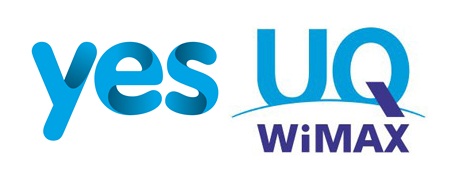Earlier this week Yes announced that it had signed an agreement with Japanese WiMAX operator UQ Communications to “further enhance both entities’ leadership positions in the 4G space and to advance the development and adoption of next-generation WiMAX technologies.
The signing coincides with the completion of the world’s first WiMAX2 field test conducted by UQ on July 8 in Tokyo. The test demonstrated a mobile WiMAX2 network delivering a downlink speed of over 130mbps in a moving vehicle.
In a statement announcing the signing Yes CEO, Wing K. Lee said that “WiMAX is the most matured and widely adopted in the world.” In the same statement, Yes claims WiMAX2 “performs better than current LTE technologies while maintaining full compatibility with existing WiMAX devices.”
We’re not fans of press releases announcing “successful” tests proclaiming crazy speeds like 130mbps over a wireless network because there is a major difference between theoretical and practical network speeds. Most of the time, these tests are conducted in a closed network where there’s virtually no network load. Realistically, you’re not going get these kinds of speeds anytime soon. So you have to take these announcements of 100+mbps download speeds with a grain of salt.
The interesting thing to note here is Yes’ decision to stick with WiMAX while almost all of the other operators in the country (including the once WiMAX posterboy, P1) are looking at building next-generation networks based on LTE.
What does this mean to the end consumer?
Well frankly, nothing. At the end of the day what technology wireless operators choose to built their networks on doesn’t matter. It’s execution and delivery of the service that counts. Mobile networks of the future need to look at innovation, not just in technology but in services. Operators need to innovate their services to differentiate themselves and this will prove to be more difficult than deploying a new network technology.
Of course we’re simplifying things a great deal here. How the network is engineered, it’s architecture, dictates what services operators can add on top of it. So everything is interrelated and things are much more complicated than we all think it is but still consumers are not interested in all this.
What matters most is the service and performance an operator can provide. Customers will not choose sides in technology, they will choose sides in performance, experience and services. Which operator delivers the best of all this, irrespective of technology, will win the 4G race.
Based on our own user experience, Yes is one of the better wireless operators in the country. It’s converged services and the ability to carry over data quota, talktime and SMS services indefinitely is also a big plus. But that doesn’t mean it’s game, set and match for the 4G operator. The 4G race is not a sprint to the finish. It’s a marathon and it is still wide open. Yes has set the benchmark, it’s now up to the rest of the operators to show us what they got.
Interesting times are definitely ahead for everyone.






